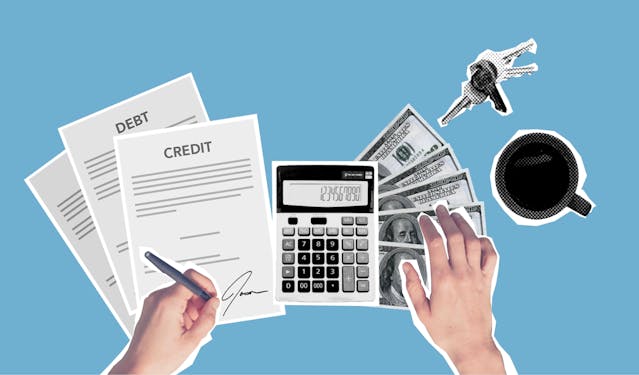Debt can be a heavy burden to carry, and it can feel like there’s no way out. If you’re struggling with debt, you may have heard about debt settlement as a potential solution. But what exactly is debt settlement, and is it the right choice for you? In this article, we’ll explore the pros and cons of debt settlement and discuss some alternatives to consider.
What is Debt Settlement?
Debt settlement is a process in which a debtor negotiates with their creditors to pay off a portion of their debt, typically in a lump sum. This is often done with the help of a debt settlement company, who will negotiate on your behalf for a fee.
The goal of debt settlement is to reduce the total amount of debt owed and to provide the debtor with a more manageable payment plan. However, it’s important to understand the potential risks and drawbacks of this approach.
Pros of Debt Settlement
Reduced Debt Amount
The most significant benefit of debt settlement is the potential to reduce the total amount of debt owed. By negotiating with creditors, you may be able to settle your debt for less than what you owe, allowing you to pay off your debt faster and for less money.
Avoid Bankruptcy
Debt settlement can also be an alternative to bankruptcy, which can have long-lasting negative effects on your credit score and financial future. By settling your debt, you can avoid the negative consequences of bankruptcy and still achieve financial freedom.
Read More on Bankruptcy and why you should avoid it here.
One-Time Payment
With debt settlement, you make a one-time payment to settle your debt, rather than making multiple payments over an extended period of time. This can be a more manageable and less stressful approach for some individuals.

Cons of Debt Settlement
Negative Impact on Credit Score
Debt settlement can have a negative impact on your credit score, as it involves not paying the full amount owed to your creditors. This can stay on your credit report for up to seven years and may make it more difficult to obtain credit in the future.
Read more on Why Your Credit Score is Important Here
Fees and Taxes
Debt settlement companies typically charge a fee for their services, which can add to the overall cost of settling your debt. Additionally, the amount of debt forgiven by your creditors may be considered taxable income, which can result in a higher tax bill.
Potential for Scams
Unfortunately, there are many debt settlement scams out there, so it’s important to do your research and choose a reputable company if you decide to pursue this option. Some companies may promise to settle your debt for a low fee, but then fail to follow through, leaving you in a worse financial situation.
Alternatives to Debt Settlement
While debt settlement may seem like an attractive option, it’s important to consider all of your alternatives before making a decision. Here are some alternatives to debt settlement that you may want to explore.
Debt Consolidation
Debt consolidation involves combining multiple debts into one loan with a lower interest rate. This can make it easier to manage your debt and potentially save you money in the long run. However, it’s important to carefully consider the terms of the consolidation loan and make sure it’s the right choice for your financial situation.
Debt Management
Debt management involves working with a credit counseling agency to create a repayment plan for your debts. The agency will negotiate with your creditors to potentially lower interest rates and create a more manageable payment plan. This can be a good option for those who are struggling to keep up with their debt payments.
Credit Repair
If your debt is primarily due to a low credit score, credit repair may be a better option for you. Credit repair involves working with a credit repair company to improve your credit score and potentially qualify for better interest rates and loan terms. This can help you save money in the long run and achieve financial freedom.
Debt Settlement Strategies
If you do decide to pursue debt settlement, there are a few strategies you can use to increase your chances of success.
Negotiate Yourself
Instead of hiring a debt settlement company, you can try negotiating with your creditors yourself. This can save you money on fees and potentially result in a better settlement. However, it’s important to be prepared and have a clear understanding of your financial situation before entering into negotiations.
Save Up for a Lump Sum Payment
If you’re unable to negotiate a settlement with your creditors, you can try saving up for a lump sum payment to offer them. This can be a more attractive option for creditors, as they will receive a larger payment upfront rather than smaller payments over time.
Consider Bankruptcy as a Last Resort
If all else fails, bankruptcy may be your only option. However, it’s important to carefully consider the long-term consequences of this decision and consult with a financial advisor or bankruptcy attorney before proceeding.
Conclusion
Debt settlement can be a tempting option for those struggling with debt, but it’s important to carefully consider the potential risks and drawbacks before making a decision. There are also alternatives to debt settlement that may be a better fit for your financial situation. By exploring all of your options and making an informed decision, you can take the first step towards achieving financial freedom.





























